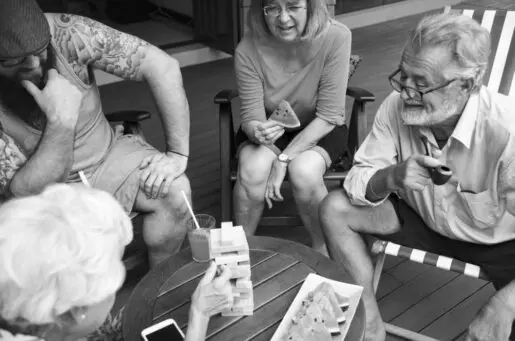Bioethics Forum Essay
Your Study is Terminated: Researchers Need to Prepare Participants
Imagine that you’re a participant in a research study in which a device is implanted in your brain. The study is testing whether the device can do something beneficial, like relieve depression or cognitive impairment. But the study is abruptly terminated. What happens to you? What ought to happen? Should the device be removed? Who should do that?
These are not hypothetical questions. National Institutes of Health funding cuts have affected more than 74,000 people enrolled in biomedical research, a new study found. Through June of this year, NIH canceled over 2,600 biomedical grants, totaling nearly $9 billion. And the NIH director has called for a review of existing grants to ensure they are in alignment with federal priorities. This means that any study can be terminated at any time, which is unprecedented in the history of U.S. research.
But when this happens, researchers have no protocols for communicating with and supporting research participants, even though they can be left vulnerable and potentially harmed. For example, termination of studies of new contraception methods or cognitive behavior therapy for postpartum depression could put participants at risk of unintended pregnancy or suicidal thoughts. There is also a loss of trust, which sometimes takes years to establish with community members, particularly those who are marginalized and already the most vulnerable. For many people, participation in research is a means of accessing healthcare that is otherwise unavailable, so when the research is eliminated, the care is also eliminated.
This unprecedented reality creates an urgent need for protocols to prepare for and communicate the termination of a study to all research stakeholders. Development of these protocols requires the participation of scientists leading the research, institutions that receive the funds, ethics committees that approve the research, and grantors that fund the research. Some of this work is being done in silos, with scientists scrambling to figure out what to do when they receive a termination notice. But we need to develop best practices so that study participants, study staff, students, fellows, and scientists will not be left in the dark when a study goes dark.
Protocols should begin with the consent forms. To help prospective research participants make a truly informed decision, consent documents should state that one of the risks of participating in the study is that it could be terminated–but if that happens, specific steps will be taken to protect participants.
While it is the right thing to do, including termination language in the consent form may make doing research more difficult. The additional risks of participating in a study may now outweigh the potential benefits, from the perspective of the participants, ethics committee, and perhaps the lead researcher, leading to lower participation or the study not being approved. Still, there is an ethical imperative to protect research participants and ensure they are well informed. Using the example at the beginning of this piece, no one wants to be in a study of a device implanted in their body without the ability to have it maintained or removed. Bioethicists and those who regulate research should help prepare and protect potential participants.
In addition to updating consent forms, new protocols should address other questions. For example, when researchers receive a study cancellation notice, whom should they tell first? How should they maintain and secure data from the research? If the research is multisite and multinational, who is responsible for this communication?
The Department of Health and Human Services has limited guidance on ensuring the best interests of the study participants when a study ends, but it falls short when discussing premature termination by the sponsor. Some IRBs have guidance for scientists on what to do, including developing a communication plan for notifying participants, whereas other IRBs simply ask scientists to contact the IRB to develop a plan.
Bioethicists can take the lead on developing step-by-step protocols that researchers should follow when they receive termination notices. This may include first obtaining rapid IRB approval. Rapid response puts more pressure on IRBs, but bioethicists can assist by drafting sample accessible language. Most importantly, there should be a shared database of termination protocols, so that methods for protecting research participants are collaborative, scientific, and iterative.
Brandon Brown, PhD, is a professor in the Department of Social Medicine, Population and Public Health at the University of California, Riverside School of Medicine. He is a Hastings Center Fellow.














Of course current leaders of NIH and many departments of the federal government never thought this through–or cared.
I’d like to think that in an ideal world, federal funding cuts, especially ones that affect research, would be graduated. There’s nothing that warrants active studies involving human subjects to be abruptly terminated like this.
I’m really dismayed by the reality Dr. Brown describes here. Abrupt study terminations without participant-centered protections result in real harm to patients and erode hope and trust for families and medical teams, especially when research participation is tied to access to care. Dr. Brown’s call for clear protocols and communication when studies are abruptly terminated should be part of ongoing discussions across all academic medical centers.
With roughly 70,000+ clinical study participants affected by paused or terminated studies in 2025 alone, including numerous pediatric and cancer research trials (one example is below), this article underscores the need for proactive health communication frameworks and strong ethical protections. This topic should be an active area of discussion among faculty and students in medical schools, as well as in bioethics, public health, and science communication programs.
https://www.pbs.org/newshour/show/federal-funding-cuts-to-pediatric-brain-cancer-research-taking-away-hope-from-families